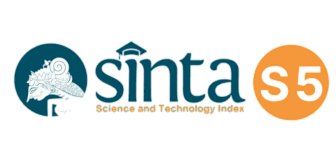Pelarangan Front Pembela Islam: Suatu studi competitive authoritarianism
Downloads
This research aims to analyze political dynamic behind the prohibition of Islamic Defender Front (FPI) phenomenon, especially from Unitary State of Indonesia and Islamic Defender Front's perspective as a two main actor on this phenomenon, with the usage of competitive authoritarianism theory. Reflect on this phenomenon, this research uses the competitive authoritarianism by Steven Levitsky as analytical tool to explain government's authoritarian tendency from this prohibition. This research uses explanatory qualitative method with data collection technique carried out by in-depth interview and observation, meanwhile the secondary data obtained from media studies and literature review. The results of this research reveal that state's interest on banning FPI lies on conducting the policing of societal organizations. As government's annotation regarding law violations by the FPI, the government needs to take firm action against FPI to protect freedom of association of other civil groups. However, this prohibition intersected with competitive authoritarianism thesis due to prohibition mechanism has abolished the role of judiciary power on review this decision and this prohibition practically shrinking the civil space which can be used by FPI to become an extra-parliamentary opposition on supervising state's policy.
Copyright (c) 2024 Dhien Favian Aryanda, Aribowo

This work is licensed under a Creative Commons Attribution-NonCommercial-ShareAlike 4.0 International License.
- Copyright of this journal is possession of Editorial Board and Journal Manager, by the knowledge of the author, while the moral right of the publication belongs to the author.
- The formal legal aspect of journal publication accessibility refers to Creative Commons Atribusi-Non Commercial-Share Alike (CC BY-NC-SA), implies that publication can be used for non-commercial purposes in its original form (cannot be modified).
- Every publication (printed/electronic) are open access for educational purposes, research, and library. Other than the aims mentioned above, the editorial board is not responsible for copyright violation.












